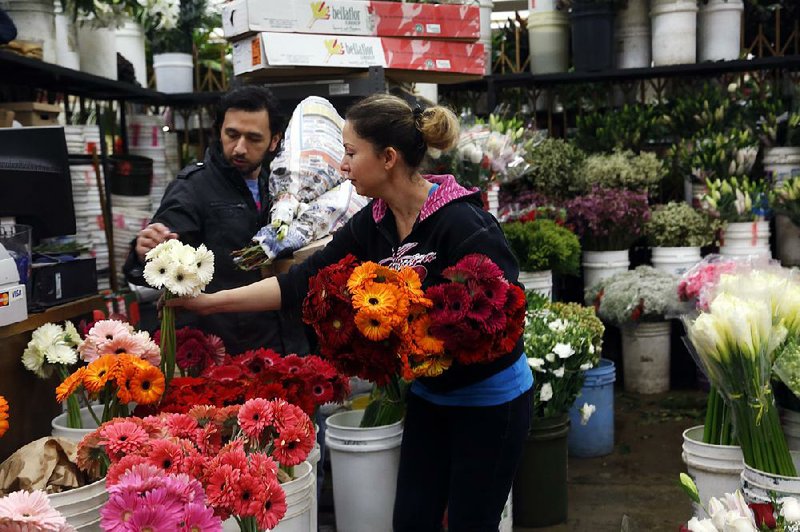WASHINGTON - Consumer confidence has fallen more than forecast this month as Americans grow more pessimistic about the outlook for the economy and employment.
The Conference Board’s index decreased to 78.1 from a revised 79.4 in January that was weaker than initially estimated, the New York-based private research group reported Tuesday. The median forecast in a Bloomberg survey of economists called for a reading of 80.
The share of Americans who said business conditions would improve in the next six months declined to a four month low. Bigger gains in payrolls and wages would help the economy recover from colder temperatures and snowstorms that weighed on growth at the start of the year.
“The biggest thing that’ll help is if income growth was accelerating, which means you’d need a stronger labor market and more jobs being created,” said Stephen Stanley, chief economist at Pierpont Securities LLC in Stamford, Conn., before the report. “On both counts we’ve had some progress, but certainly not enough to make people enthusiastic about their prospects.”
Estimates in the Bloomberg survey of 82 economists ranged from 75 to 86 after a previously reported January reading of 80.7. The index averaged 53.7 in the recession that ended in June 2009.
The Conference Board’s measure of consumer expectations for the next six months declined to 75.7 from 80.8 a month before. The share of consumers who said jobs would become more plentiful fell to 13.3 percent from 15.1 percent.
“Consumer confidence declined moderately in February, on concern over the short-term outlook for business conditions, jobs and earnings,” said Lynn Franco, director of economic indicators at the Conference Board, in a statement. “Consumers believe the economy has improved, but they do not foresee it gaining considerable momentum in the months ahead.”
The Conference Board’s present conditions measure increased to 81.7 this month, the highest since April 2008, from 77.3. Consumer views of current labor-market conditions improved. The share of respondents who said jobs were plentiful rose this month to 13.9 percent, the most since June 2008, from 12.5 percent.
The difference between those who said employment opportunities were plentiful and respondents who said jobs were hard to get was the highest since August 2008.
The drop in the Conference Board’s index comes after figures that showed purchases at U.S. retailers declined in January by the most since June 2012. Retail sales fell 0.4 percent as bad weather and limited employment growth prompted shoppers to pull back, Commerce Department figures showed this month.
“While some economic metrics are improving modestly, the recovery has been uneven, and mostly measures remain well below pre-recession level,” Martin Barrington, chief executive officer at Richmond, Va.-based Altria Group Inc., the largest seller of tobacco in the U.S., said at a conference in New York last week.
Higher prices at the gas pump may also weigh on consumers’ moods. The average price of a gallon of regular gasoline was $3.43 Monday, the highest level since September, according to data from AAA, the nation’s largest motoring organization. In Arkansas, the average price Tuesday was $3.23, up from $3.08 a month ago.
Business, Pages 25 on 02/26/2014
